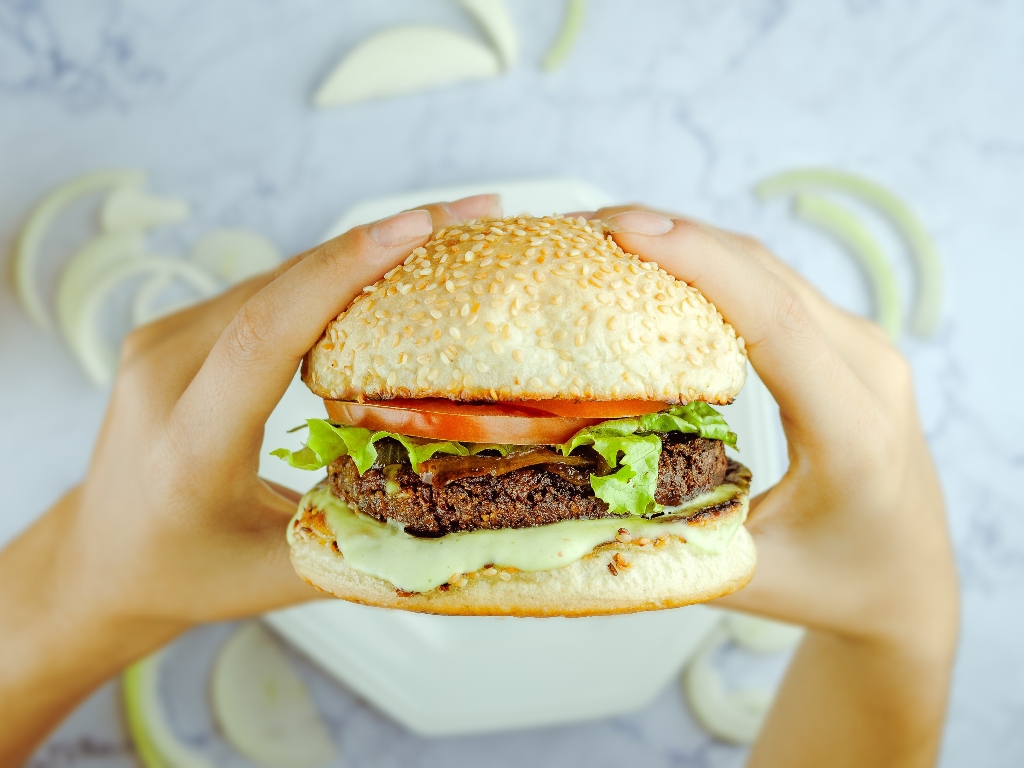These Vegan Protein Sources Are Better for You and the Planet
9 Mins Read
“But where do you get your protein?” is a familiar question for most people who follow a vegan or plant-focused diet. And it’s understandable. Around the world, many are taught from a young age that meat from animals is essential for protein.
But things are starting to change. More people than ever have chosen to reduce their animal product intake in the last few years.
In Hong Kong, for example, research suggests that nearly a quarter of the population is actively cutting down on meat. They’re doing so for a variety of reasons, but one key motivation is the planet. That’s because the meat industry contributes to a wide variety of environmental problems, like deforestation and greenhouse gas emissions.
The good news is, most people who follow a plant-based or flexitarian diet don’t have to worry about not getting enough protein. Vegan protein comes in all forms—from beans to tofu to vegan meat products. When it comes to the latter, we’ve rounded up some of the best options on the market.
But first, let’s take a look at what vegan protein is, how much we need, and take a deeper dive into the issues with animal protein.
What is vegan protein?
Like fat and carbohydrates, protein is a macronutrient, which means the body needs a large amount of it. That’s because protein is made up of amino acids, which the body breaks down and uses to build protein where it’s needed.
When we’re young, protein helps bones and muscles to grow. But throughout our lives, protein contributes to things like immune system function and healthy organs.
Animal products are one dietary source of protein. Like us, protein helps animal muscles to grow and function. So when they are slaughtered and consumed as meat, humans digest all of the protein stored in their bodies.
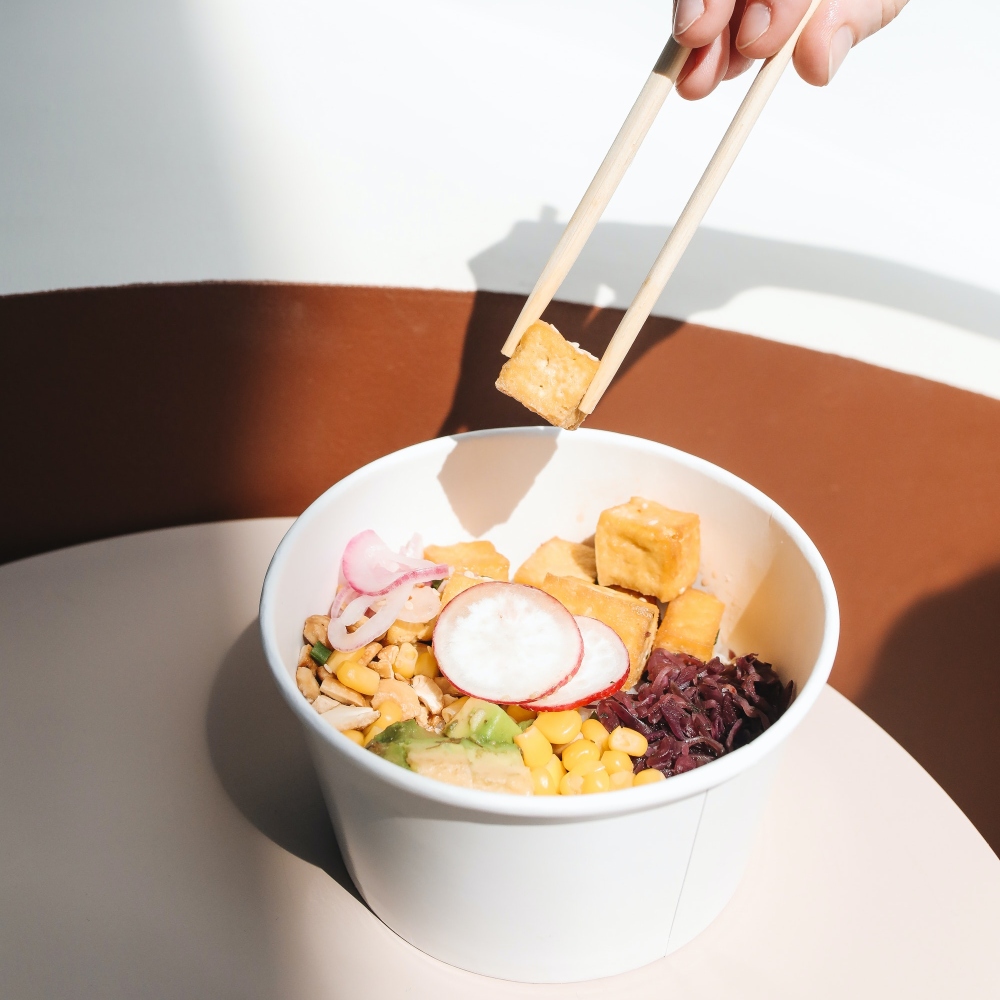
But vegan protein also exists. One block of tofu, for example, contains roughly 36 grams of protein. Plus, the soy-based ingredient is a “complete protein,” which means that, like eggs and meat, it contains all nine of the essential amino acids that the human body needs. (The nine essential amino acids are histidine, isoleucine, leucine, lysine, methionine, phenylalanine, threonine, tryptophan, and valine.)
How much protein do we need?
How much protein each person needs depends on a few variables, like age, occupation, and weight. But most nutritional organizations agree that mostly, we don’t actually need a huge amount.
According to the US Department of Health and Human Services, the Dietary Reference Intake is around 0.36 grams of protein per pound of body weight for the average adult.
Due to the physical challenges they put their bodies through, athletes may need more than this. Elderly people may also require more protein. This is because they are more susceptible to conditions like osteoporosis, which weakens bones and makes them more vulnerable to breakage.
It is important to get the right amount of protein for your individual needs. Deficiency is rare, but symptoms include a higher risk of bone damage and muscle wasting.
Too much protein can also cause problems, like a higher risk of kidney stones. However, Harvard Health notes that while too much protein from red meat may lead to a higher risk of heart disease or colon cancer, consuming a lot of plant-based protein is not associated with the same level of risk.
What’s wrong with animal protein?
As briefly outlined above, sources of animal protein, like red meat, can damage health. The UK’s National Health Service, for example, recommends that anyone who consumes more than 90 grams of red or processed meat a day reduce this to at least 70 grams to cut their risk of bowel cancer.
Eggs are another popular animal source of protein. But, because of their cholesterol content, eating too many has also been linked with a higher risk of cardiovascular disease.
There are also a number of animal welfare concerns associated with the factory farming system that produces meat. But, on top of that, many studies also confirm that animal agriculture is detrimental to the environment.
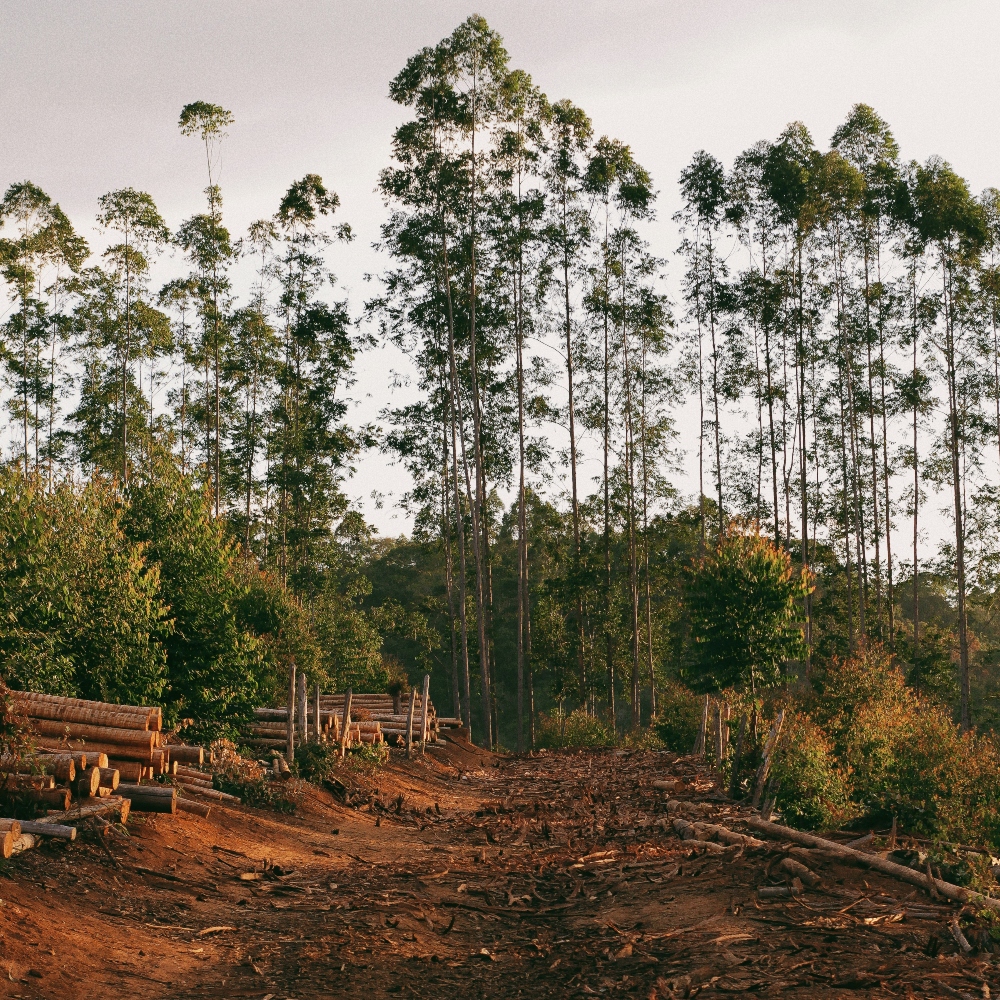
According to the United Nations, livestock farming is responsible for 14.5 percent of global greenhouse gas emissions. It’s also a major driver of deforestation.
The beef industry, in particular, is a key driver of destruction in the Amazon. This has contributed to the rainforest now emitting more carbon dioxide than it can absorb for the first time ever.
Soy production is also associated with deforestation, but this is also linked to animal agriculture; 80 percent of farmed soy is used to feed livestock.
Among the other environmental issues associated with animal farming are water pollution, biodiversity loss, and soil erosion.
Best vegan types of protein
There are many types of vegan protein available. Seitan, for example, is one of the best. It’s made from wheat gluten, and packs in around 25 grams of protein per 100 grams. Plus, it’s better for the planet than meat. In fact, last year, one study found that the carbon footprint of seitan is 130 times lower than that of beef.
Other popular types of vegan protein include tofu and tempeh, the latter contains 19 grams of protein per 100 grams. Seeds, legumes, pulses, and nuts are also good sources of protein.
All are better for the planet than animal products. Take peas, for example, which are a type of pulse. Eating one 80-gram serving every day for one year contributes six kilograms to your annual greenhouse gas emissions. Eating a handful of nuts for the same amount of time contributes five kilograms.
In contrast, eating two eggs per day contributes 202 kilograms of emissions. Eating two lamb chops just once or twice a week would contribute 339 kilograms.
Mycoprotein, used by the vegetarian meat brand Quorn, is another good, sustainable source of protein. One recent study found that replacing 20 percent of the world’s beef consumption with mycoprotein, which is made with fermented fungi, could cut deforestation in half within the next 30 years, as well as reduce methane emissions by 11 percent.
Quorn isn’t alone. There are plenty of vegan meat brands on the market that offer a nutritious, sustainable way to get your protein. Here are some of our top picks.
Best vegan protein brands
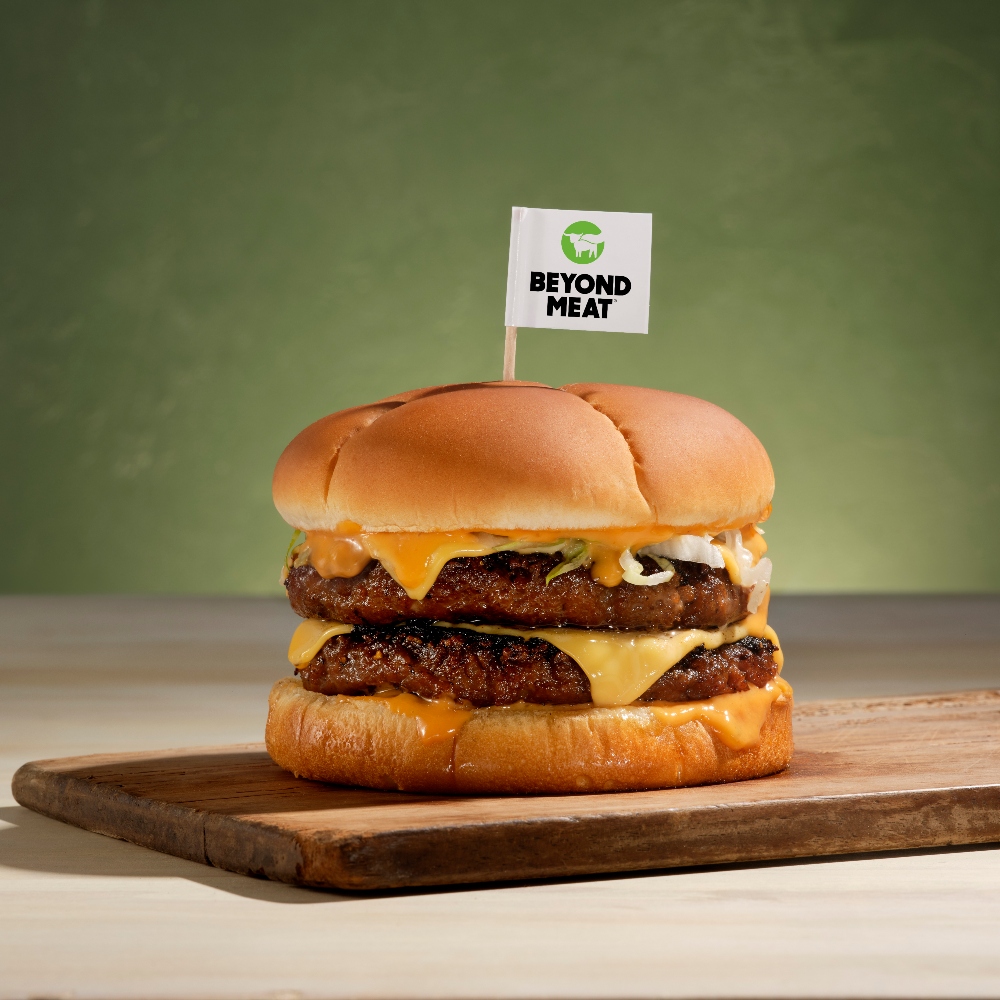
1. Beyond Meat
Founded back in 2009, California-based Beyond Meat is arguably one of the most well-known vegan meat brands in the world. Its products are available in supermarkets and restaurants in more than 50 countries.
One Beyond Meat burger, which is made with pea protein, contains 19 grams of protein. According to the brand, its Beyond Burgers require 99 percent less water, 93 percent less land, and emit 90 percent fewer greenhouse gasses than a traditional quarter pounder made with beef.
2. OmniPork
Created by Hong Kong-based Omnifoods, OmniPork, which is made with shiitake mushrooms, soy, peas, and rice, has risen in popularity in the last few years.
You can find the brand’s products, which include Pork Style Strips, Plant Based Minced Pork, and Plant Based Luncheon Meat, in restaurants, hotels, and supermarkets around the world. In Hong Kong, you can even order its vegan luncheon meat from the McDonald’s menu. According to the brand, one serving of OmniPork contains 12 grams of protein.
3. Impossible Foods
Like Beyond Meat, Impossible Foods is one of the most well-known players in the plant-based space. Based in California and founded in 2011, its burgers feature heme, a proprietary ingredient made from genetically engineered yeast. According to the brand, “it’s what makes some meat taste so meaty.”
Because its heme was a new ingredient, Impossible Foods struggled to get regulatory approval in some markets. But its products are currently available in several countries, including Hong Kong, China, the US, and just recently, the UK.
Like the Beyond Burger, one Impossible Burger contains around 19 grams of protein. Its Impossible Chicken Nuggets contain 13 grams per serving.
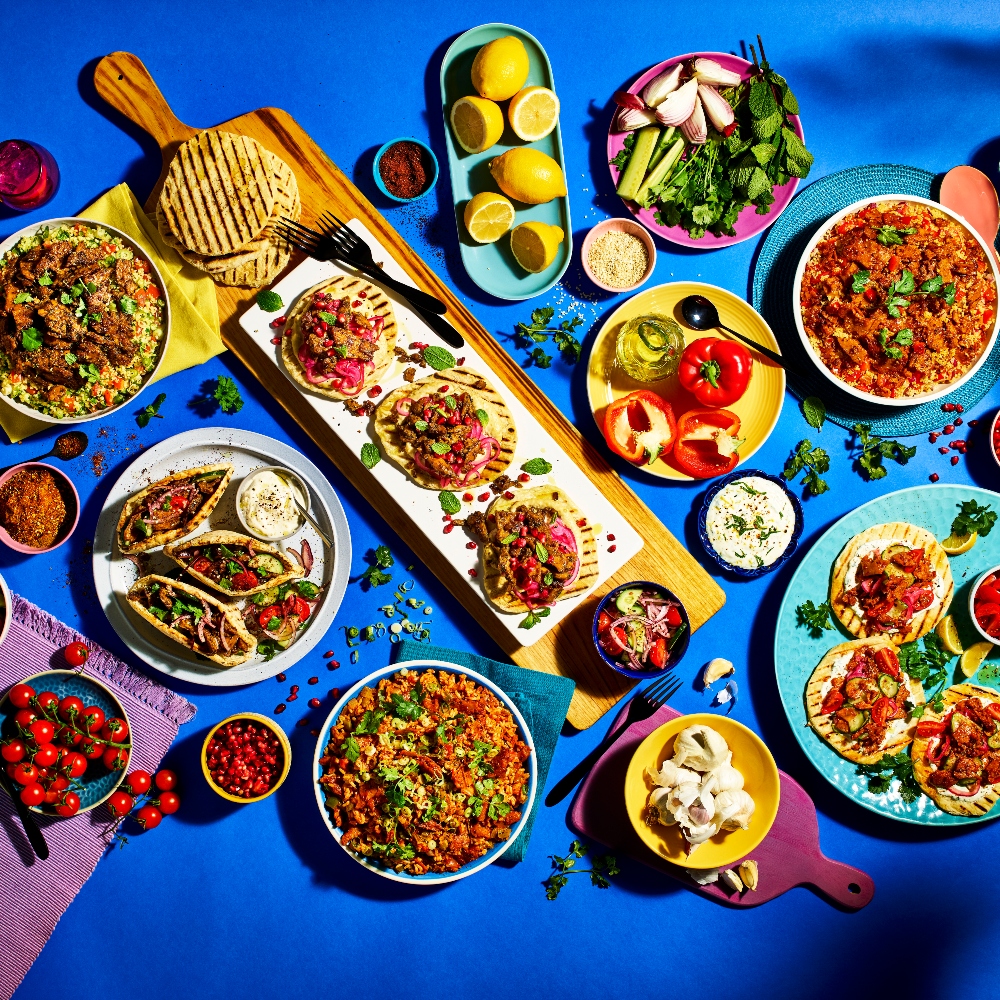
4. Quorn
Founded back in the 1980s, Quorn was one of the first vegetarian meat brands in the UK. Now, its range of mycoprotein products is available in around 20 different countries. It’s available in many supermarkets and health food stores. It’s even served in some fast-food restaurants, like KFC in the UK.
As outlined above, Quorn’s vegan and vegetarian meat products are better for the planet than their traditional animal-derived counterparts. Plus, they’re packed with protein.
5. Heura
A relatively new vegan meat brand, Heura was founded in Barcelona in 2017. But despite this, it has experienced fast growth and its products are available in around 20 regions around the world. The brand also just raised €20 million to keep expanding.
Heura offers a wide range of chicken-inspired vegan meat products, including Chunks Mediterranean and Chunks Spiced, both of which boast around 19 grams of protein per 100-gram serving. The brand has also recently started offering Spanish Chorizo Sausages and Burgers.
6. Batata Greens
Named after sweet potato leaves (batata leaves), Batata Greens’ vegan and vegetarian products are available across Hong Kong and Macau, in supermarkets, independent stores, and online. Its wide range of plant-based meats includes vegan BBQ Beef, which packs in more than 19 grams of protein per 100 grams, and vegan Sweet and Sour Pork Tenderloin, which boasts more than 20 grams of protein per 100 grams.
7. Alpha Foods
Another California brand, Alpha Foods has been on the plant-based food scene since 2015. As well as nuggets, strips, and meatballs, the brand is known for its meaty vegan burritos. There’s the Bac’n Scramble, for example, which contains 16 grams of protein, and includes tofu as well as the brand’s own plant-based bacon. Its Protein Supreme option, which contains 17 grams of protein, features tofu, steakless strips, and plant-based bacon. Alpha also offers several vegan breakfast sandwiches, including a Chik’n & Maple Waffle.
8. Gardein
Another OG meat-free brand, Gardein started back in the early 2000s. Over the last two decades or so, it has developed a wide range of vegan meat products. One of its most popular options is its Mandarin Orange Crispy Chik’n, which boasts 13 grams of protein per serving. Its Vegan Turk’y Roast (with 19 grams of protein per serving) is another favorite, particularly around the holiday season.

9. Karana Foods
Based in Singapore, Karana Foods is a brand-new vegan meat brand. Jackfruit, a tree fruit grown across Asia, Africa, and South America, is its ingredient of choice.
While jackfruit has been eaten for centuries in many different cultures, recently it has risen in popularity for its meaty texture. And that’s why Karana has chosen it to create its vegan meat products, which include the Karana Potsticker and Karana Ground Jackfruit Meat.
Both are currently served in select restaurants in Hong Kong, and will soon be available to purchase online too.
The protein content isn’t quite as high as the other brands on this list (the Potsticker has 7 grams per serving while the Ground Jackfruit Meat has 8 grams) but they will still contribute to your daily intake.
10. Tindle
Next Gen Foods, the makers of the Tindle vegan chicken brand, is one of the hottest new companies in the plant-based food space. Founded in 2021, it has already broken records. In February 2022, it raised a whopping $100 million in Series A funding.
Currently available in 500 restaurants in 8 countries, including the US, the UK, Singapore, and Hong Kong, Tindle has received high praise for its realistic-tasting, soy-based vegan chicken, which it developed specifically for chefs. It’s also a great protein source: each serving of Tindle chicken contains more than 15 grams of protein.
Right now, Tindle is only available in the food service industry, but the brand has expressed interest in venturing into other channels in the future.
Lead image courtesy Pexels.

